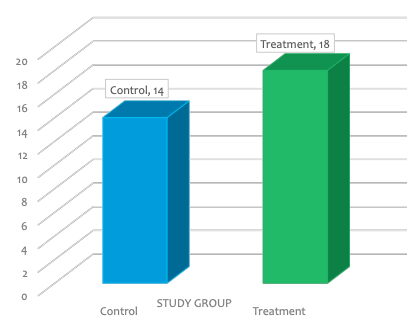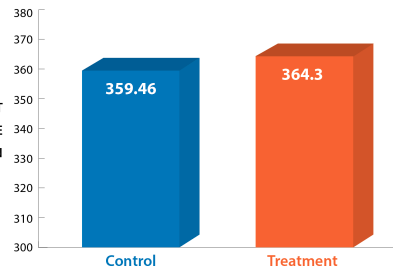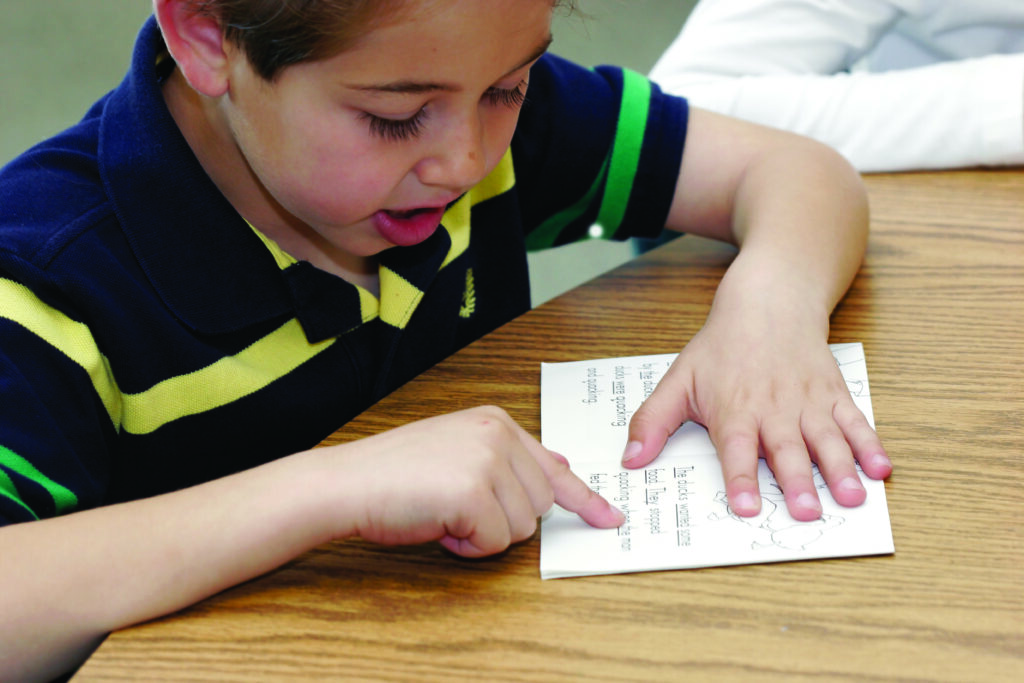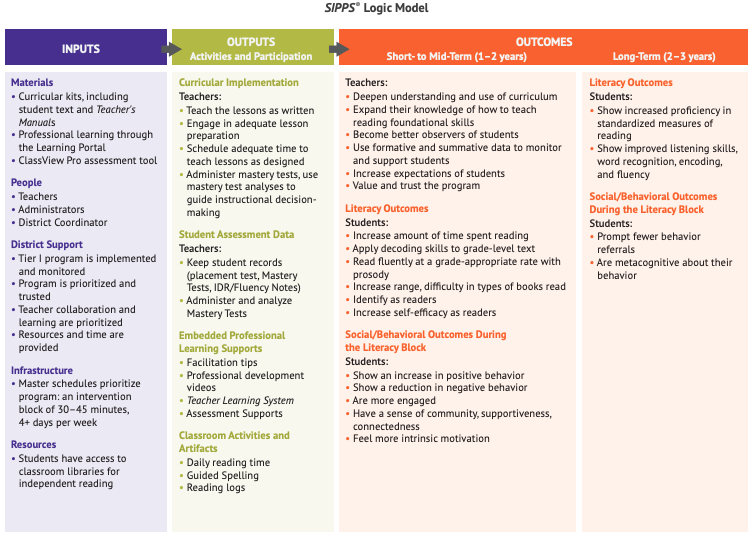For over 40 years, the SIPPS® program has been a trusted resource for educators across the country due to its thoughtful design that continuously evolves alongside research, staying aligned with what we know about the science of reading.
Download the Evidence for SIPPS below, and keep scrolling to view supporting research—including third-party studies, case studies, and more.
Every Student Succeeds Act (ESSA)
The Every Student Succeeds Act (ESSA) replaced No Child Left Behind in December 2015. This federal education legislation emphasizes state and local control, providing school districts with the flexibility to determine appropriate curricula and interventions for their schools. The levels of evidence define the study criteria.
SIPPS is recognized by ESSA for meeting Level 2 “Moderate Evidence” requirements.

| Level 4 Demonstrates a Rationale | Level 3 Promising Evidence | Level 2 Moderate Evidence | Level 1 Strong Evidence | |
|---|---|---|---|---|
| SIPPS | ✔︎ | ✔︎ | ✔︎ |
Level 2: Moderate Evidence
A well-implemented quasi-experimental study with matched treatment and control groups
Level 3: Promising Evidence
A well-implemented correlational study with statistical controls for selection bias
Level 4: Demonstrates a Rationale
A program or practice, under evaluation, that is informed by research
Level 2: Moderate Evidence
A well-implemented quasi-experimental study with matched treatment and control groups

The Impact of SIPPS Instruction on the Development of Students’ Reading Skills – Pajaro Valley Unified School District, California

Evaluating the Effectiveness of the SIPPS Program: Comparing Reading Skills Growth of Intervention Students Receiving SIPPS Instruction with the Growth of Those Receiving Existing Instruction – Pasco County Schools, Florida

Evaluating the Effectiveness of the SIPPS Program Comparing the Reading Skills Growth of Intervention Students Receiving Sipps Instruction With Those Receiving “Instruction as Usual” – Orange County School District, Florida
Level 3: Promising Evidence
A well-implemented correlational study with statistical controls for selection bias

Field Test Evaluation – Napa Valley Unified School District, California
Level 4: Demonstrates a Rationale
A program or practice, under evaluation, that is informed by research

SIPPS Logic Model
Read More Research Briefs and Case Studies

Oakland Study Finds Parents as Effective as Teachers in Tutoring Young Readers
The Center For Reinventing Public Education’s look at The Oakland REACH called parents ‘untapped pools of talent’ in promoting literacy.

Orange County Public Schools: Read2Succeed Accelerates Early Reading Achievement with In-School Tutoring and the SIPPS Program
The Read2Succeed program within Orange County Public Schools, Florida provides tutoring services to support reading development among students in grades K–2. In the 2021–22 school year, the SIPPS.
View research brief

Paul Revere Innovation School: Targeting Foundational Skills to Improve Reading
Paul Revere Innovation School’s implementation of SIPPS during the COVID-19 pandemic expanded to Being a Reader (in grades K–2) and Making Meaning (in grades 3–5) during the 2021–2022 school year.

Bonita Unified School District: Considering the Impact of the SIPPS Program on Improved Reading Achievement
Bonita Unified School District began a district-wide implementation of SIPPS® in 2018. This research brief reports on data from the 2021–22 school year.

Sioux Falls School District: Midwestern District Elevates Foundational Skills in Literacy
Collaborative Literacy and SIPPS provide the largest school district in South Dakota with a comprehensive ELA solution and successful outcomes for all readers.

Pajaro Valley Unified School District: A Focus on Core Curriculum Implementation Facilitates MTSS and Accelerates Achievement
Pajaro Valley Unified School District addresses excessive MTSS Tier III demand through intensive intervention with SIPPS across all tiers.
Why Are So Many States Recommending SIPPS?
Learn why states across the nation have vetted and approved SIPPS as high-quality, research-based instructional materials.